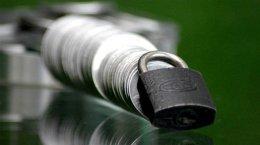When Majid Hussain asked his mother for career advice, her response was unequivocal. “She’d rather her eldest son remained working as a barrister,†he says. “She was quite offended by the idea that I would help to run a toilet roll company.â€
A dull thumping sound comes through the walls of the stark meeting room where he is speaking. The steady beat of paper-conversion machines in a large factory in Blackburn, in north-west England, is clear evidence of how Mr Hussain put his mother’s fretfulness to one side, helped by support from his two brothers and by his father’s neutrality on the career issue.
It is also testament to a certain stubborn resilience in UK manufacturing in general – and in the former textile town of Blackburn, where Accrol Papers is based, in particular.
As managing director of Accrol, Mr Hussain presides over the fifth-biggest company – and the only one that is British-owned – in the £1.6bn-a-year market of supplying toilet rolls and related items such as kitchen towels to the UK market. Two-thirds of the company’s revenues come from the 600m or so toilet rolls bought each year.
It was set up in 1993 by Jawid Hussain, Majid’s father, who remains chairman. Majid joined his two brothers, Wajid and Mozam, who were already working in the business, four years ago.
Meeting them at the factory, all four seem lively, forthright and close. It is no surprise to learn that all of them – with their wives, plus five grandchildren – live in the same 12-bedroomed house in nearby Accrington.
Majid speaks loudly. “It might be because of my legal training – you have to raise your voice to make yourself heard at the back of the court. But, since we are part of a rather brash family, we have to try hard to make our point when everyone else is speaking at the same time,†he says.
Family businesses have a reputation for ructions and factions, and 34-year-old Majid admits business meetings can be rumbustious. But he adds: “By being open, we can nearly always resolve [any differences] in the end.â€
Whether it is this direct approach or an adventurous attitude to investment – the family has spent £25m on new machines and buildings since 2005 – the 130-strong company has grown fast. Sales in the year to April 2012 are expected to reach £70m, 10 times more than in 2005. Pre-tax earnings are likely to be about £7m. Two gleaming Bentleys and an equally flamboyant Rolls-Royce are parked outside.
Jawid Hussain and all three sons are at the factory today, so why not four vehicles? It turns out that Majid is unable to drive because he suffers from a retina disorder that means he will probably soon lose his sight completely. Today, Wajid has driven Majid’s Bentley to work to give his brother a lift, leaving his own Rolls-Royce at home. “I can see your outline – but I can’t make out your face well enough to say if you have glasses,†Majid says.
Knowing he would get plenty of support in the family business was one reason he quit as a barrister to join Accrol, initially as sales director. But he says he always thought he might one day join the family business. “I’d come back at weekends and spend time in the factory. I always considered Accrington home and the place I might end up,†he says.
Jawid, who was born in Pakistan, came to Britain in 1967 and set up the business after being made redundant from a job as a machine operator in a dairy company. Keen to put his knowledge of machinery to use, he invested savings of £67,000 to buy second-hand machinery to start up in tissue products, initially in a small factory in Accrington. His wife Mahroof was company secretary.
When Jawid and Mahroof decided in 2009 to sell the entire business to the three sons to simplify tax liabilities, Mahroof quit the business. Majid took over as managing director around the time of the ownership change.
Majid says his father is “a great source of guidance. He works five to six hours a day – rather than the 14-15 hours he used to put inâ€. Jawid provides strategic direction, while Majid looks after sales, 31-year-old Wajid heads production, and Mozam, 28, is finance director.
Accrol’s biggest rivals are multinationals such as Sweden’s SCA or the Georgia-Pacific of the US. Majid says Accrol’s approach to taking on the big players is partly psychological: “When you are a small company in an industry full of giants there is a tendency to think they have got everything right. But in reality there are a lot of areas where a small company can do better.â€
He cites Accrol’s development of processes to make high-quality paper more cheaply, or its new packages of products to appeal to distributors that sell to businesses rather than consumers. “Because, since 2005, we have invested so much in new machines that use the latest technology, we can be much more flexible than our bigger competitors,†says Majid. Of the £25m invested since 2005, roughly half – mostly raised from bank loans and related borrowings – has paid for plant and buildings. The other half comprises spending by Phoenix Court, a separate Hussain family-owned business, which leases buildings to Accrol. Accrol has also targeted the lower-price end of the market, with its biggest customers including discount retailers such as Home Bargains and Poundstretcher. “The UK economy has not really been doing well for some time,†says Majid. “A lot of people would rather not be spending £2 on a pack of four toilet rolls, while they will spend £1. By investing in the best machinery we can find, we have given ourselves a good platform to address this end of the market.â€
Accrol buys paper in the form of unfinished “jumbo rolls†to be converted into the final product. It is considering further spending of up to £30m on new plant for making paper directly from pulp, which would help insulate it from fluctuations in the supply of raw materials. On the back of further supermarket orders, Majid is confident sales could grow to £100m by 2013-2014, and continue to expand. “We have only 4 per cent of the [UK tissue market]. So there’s plenty of room for growth.â€
In the longer term, Majid says, there is a “fair chance†the family would accept a good offer for the company. But he confirms he has no regrets over ignoring his mother’s advice to stick with law, adding that he would make sure they would avoid a “no compete†clause in any contract. “If we ever sold Accrol I’d start another company in the same sector,†he says.
More News From Financial Times






